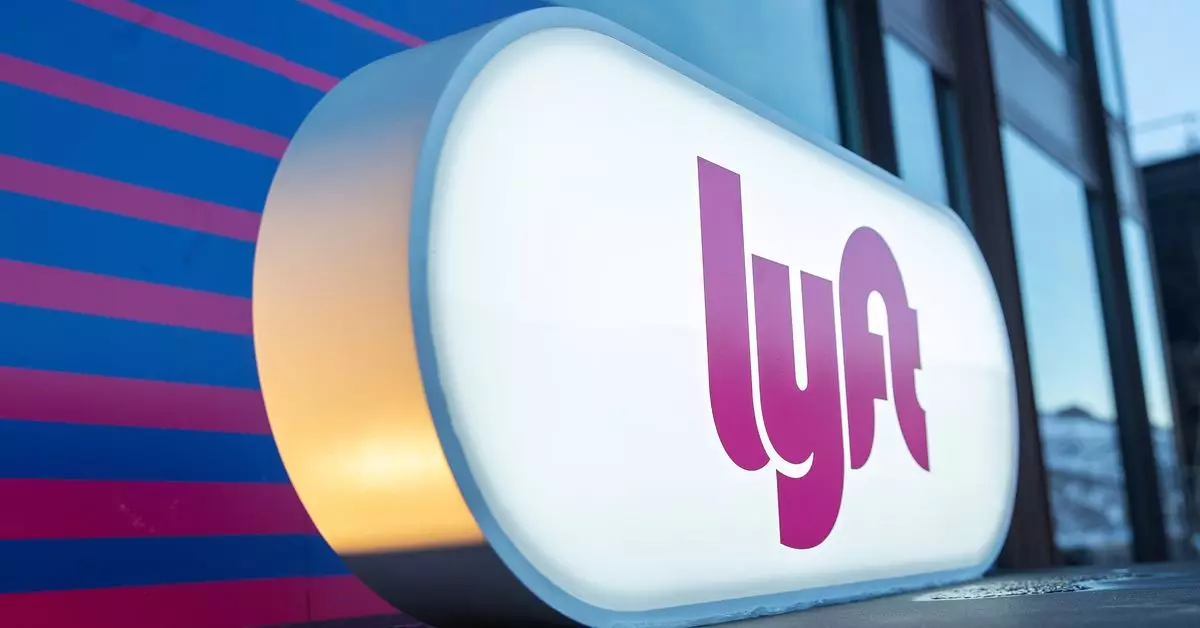In recent years, the gig economy has revolutionized the way individuals work, offering flexibility and opportunities for many. However, this freedom has often come under scrutiny, particularly regarding how firms within this sector advertise their pay structures. A recent development in this saga involves the rideshare giant Lyft, which agreed to a settlement of $2.1 million with the Federal Trade Commission (FTC). The settlement centers on misleading advertising regarding driver earnings, raising significant questions about transparency and fairness in the gig economy.
The crux of the FTC’s allegations lies in Lyft’s previous marketing strategies that claimed drivers could earn “up to $33 per hour” in places like Atlanta. Such statements, as noted by the FTC, skewed the reality of driver earnings by sourcing figures primarily from the top earners—essentially cherry-picking data. This practice misrepresented the potential income for the average driver, inflating expected earnings by as much as 30%. The deceptive nature of these claims brings forth ethical concerns regarding Lyft’s responsibility towards its drivers.
Moreover, Lyft’s inclusion of tips in its earnings claims further muddied the waters. While tips are certainly part of a driver’s income, presenting them within the context of hourly wage claims provided a false narrative surrounding actual pay. The deceptive portrayal not only misleads prospective drivers but also affects current drivers who may feel undervalued or underpaid when their actual earnings do not match advertised figures.
As per the terms of the settlement, Lyft is now required to adjust its advertising practices. This obligation mandates that any future claims regarding earnings must be based on the actual average earnings of drivers, excluding tips from the calculations. FTC Chair Lina M. Khan emphasized that such misleading claims are not merely unethical but legally actionable. This enforcement action is indicative of a broader regulatory trend aiming to hold companies accountable for their advertising practices in the gig economy.
Beyond the financial penalty, the settlement compels Lyft to reconsider its entire approach to communicating driver compensation. A shift towards greater transparency could reshape how drivers interact with the company, potentially restoring trust among those who feel misled.
Seasoned Players in a Shifting Landscape
Lyft’s settlement comes in a climate where gig economy companies face increasing scrutiny from not just federal regulators but also state and local authorities. Laws in several regions now demand minimum wage guarantees for rideshare drivers, signaling a growing recognition of their labor rights. Notably, both Lyft and its main competitor, Uber, have encountered criticism for tactics that limit drivers’ earning potential, such as restricting access to ride requests based on market conditions.
These legal frameworks represent a significant shift in how gig workers are treated, emphasizing the need for fair wages and safe working conditions. The collective unrest among gig workers has fueled a louder call for labor regulations that may redefine the landscape of gig work as we know it.
The FTC’s action against Lyft is more than just a case of corporate accountability—it is a bellwether for the entire gig economy. It highlights a crucial turning point where regulatory bodies are beginning to enforce existing laws against deceptive marketing practices. With states enacting legislation to protect gig workers’ rights, other companies in the industry must now refrain from similar indiscretions.
As we look toward the future, the emphasis on truthful advertising and fair compensation could fundamentally alter how rideshare firms operate. Companies that fail to adapt to these new regulations may find themselves facing similar repercussions, impacting their bottom line and brand reputation.
The Lyft settlement should serve as a cautionary tale for all participants in the gig economy. It emphasizes the need for transparency and fairness when it comes to compensating workers. As the industry evolves, regulations will likely continue to tighten, demanding accountability from businesses that have, until now, operated in a somewhat unregulated environment. As such, both workers and consumers must remain vigilant, advocating for ethical practices that prioritize equity and fairness in the gig economy.


Leave a Reply